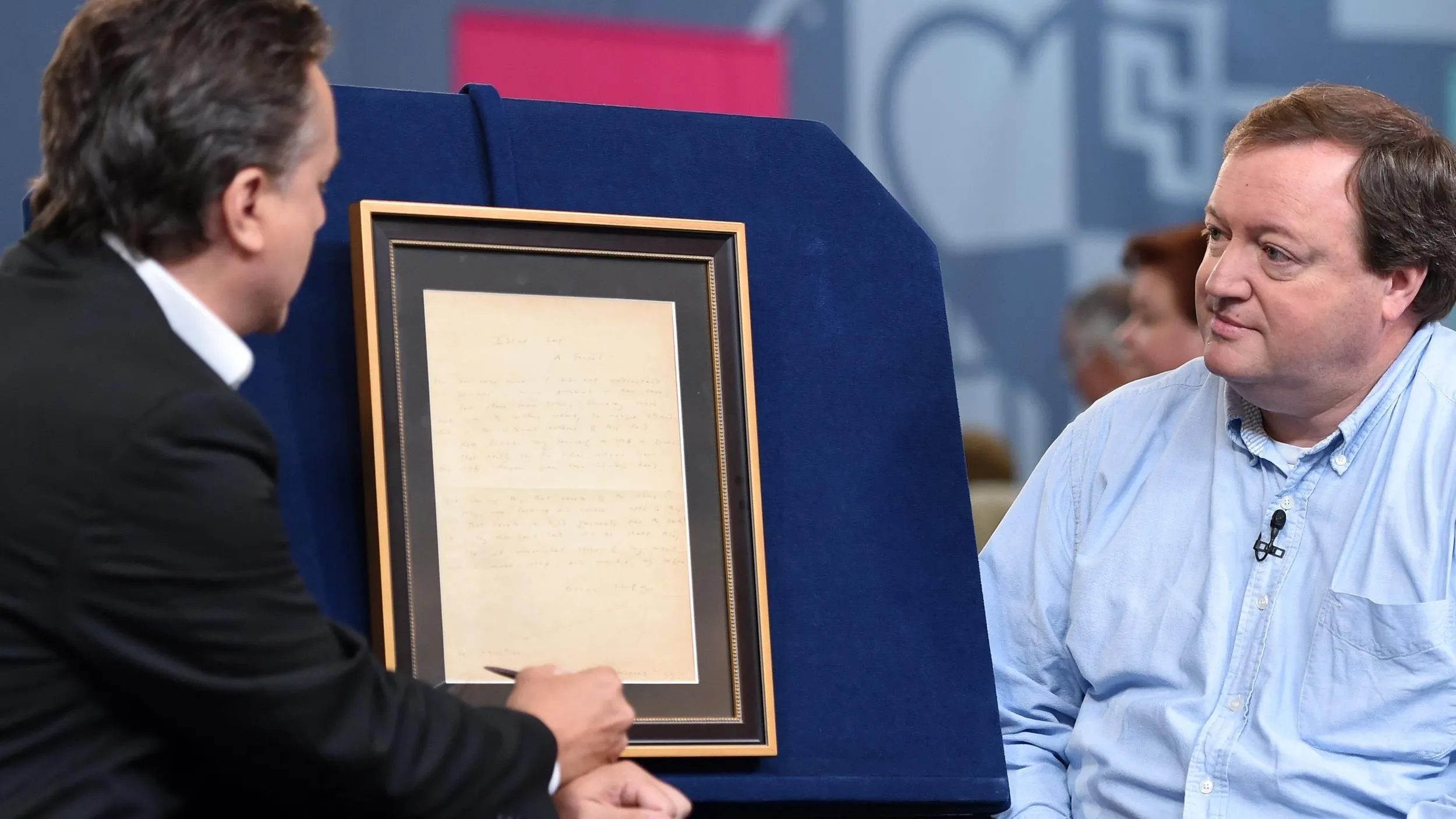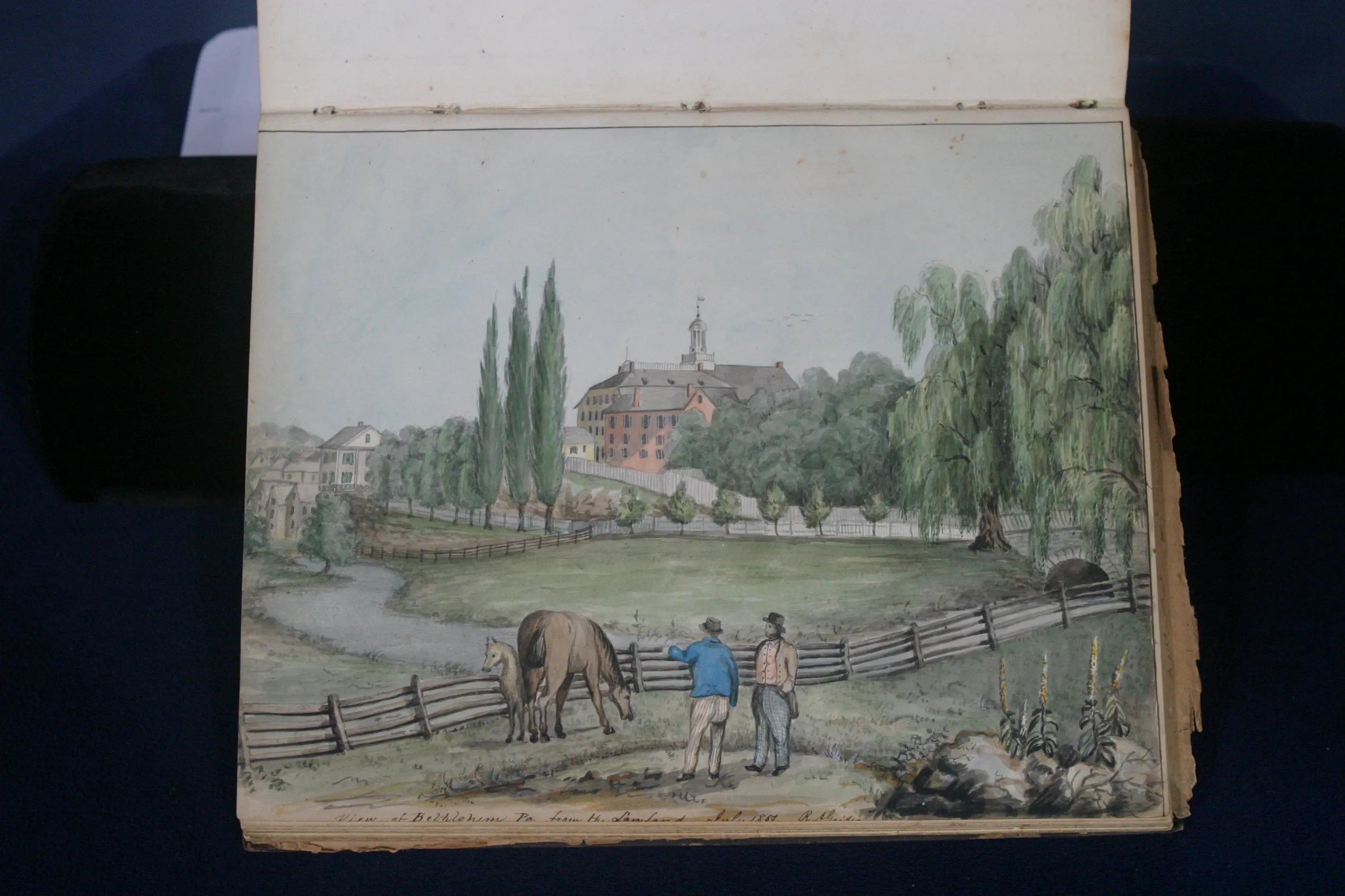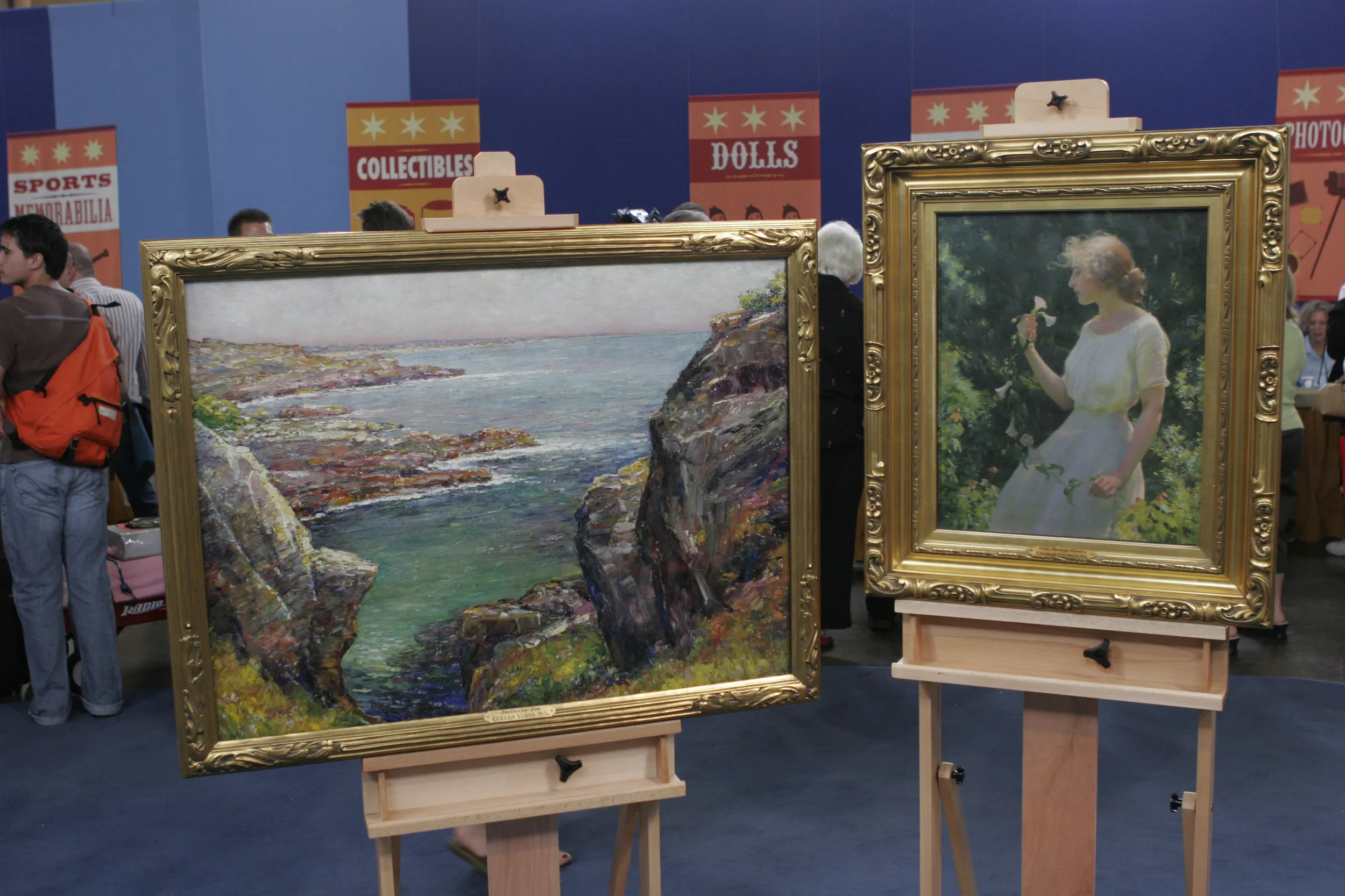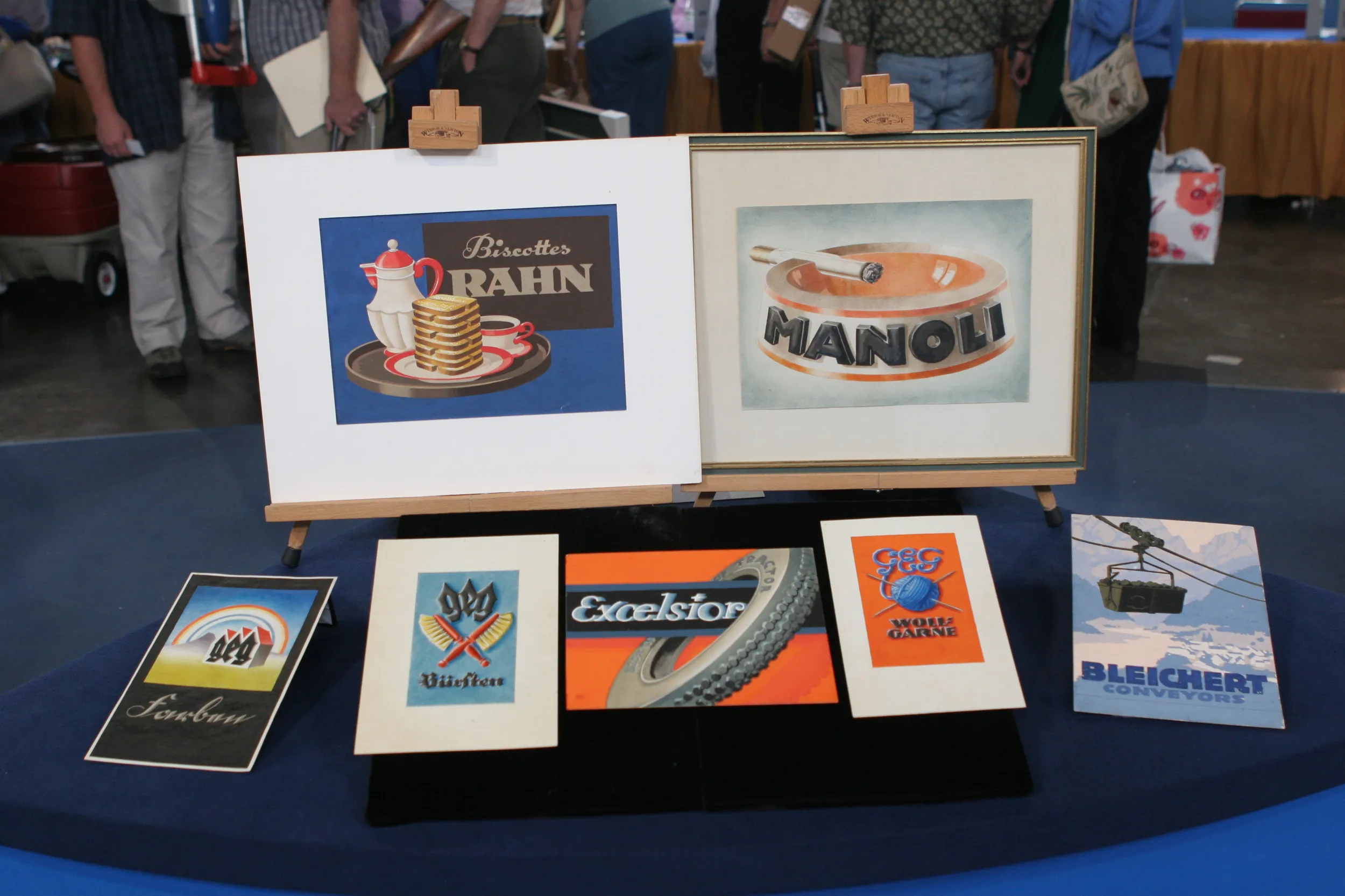APPRAISER: I really appreciate you bringing in this wonderful manuscript poem by Oscar Wilde today. Why don't you tell us what you know about its history?
GUEST: I worked for a woman when I was in college taking care of show dogs that she had. She approached me one day and she said, "I know you're an English major, you'd like this," and she handed it to me.
APPRAISER: Do you know much about where she would have acquired it? Was it a relative or something?
GUEST: Her father-in-law was the man referred to here as "for Christian." He was a newspaper reporter at one time in the late part of the 1800s and covered the Dreyfus trial in Paris, and that's where I believe he met Wilde.
APPRAISER: So it's inscribed on the bottom here "for Christian." As we understand, it was Christian Gauss who received the poem.
GUEST: That's right.
APPRAISER: And he became a fairly important professor and dean of the college at Princeton, wildly renowned person. But as you say, he was in Paris apparently in 1899 for the Dreyfus trial and wrote articles for The Nation, and by repute, had met Oscar Wilde. Oscar Wilde, one of the most important Irish poets of the late 19th century, playwright, wrote The Ballad of Reading Gaol and The Importance of Being Earnest, and persecuted for his homosexual lifestyle. At first, it appeared that it might have been an unpublished poem because the title here, "Ideal Love: A Sonnet," is not a title that's recorded in the literature as a poem by Wilde. But I discovered the text of the poem is actually quite a well-known and very famous poem by Wilde called "The New Remorse," which he wrote in 1891 for his lover, Lord Alfred Douglas. It's a very powerful, evocative love poem in essence, but it's layered with elements of guilt and remorse. So the first line, "The sin was mine, I did not understand. So now is music prisoned in her cave." A concealment of the homoerotic love affair he was having with Douglas. Now, this is incredibly important because eventually, he sued for libel-- Douglas's father-- and in turn was accused of gross indecency, and eventually put to trial, convicted, and he went to jail for two years of hard labor that really broke his spirit. After being released from jail, he went to Europe, reunited with Douglas, but he eventually ended up in Paris destitute, and we know very little about his time when he was in Paris. And this is essentially his last year alive. He died in 1900 at the L'Hotel in Paris basically penniless. So the fact that this was written in 1899 to Mr. Gauss at a place called La Varenne... We're not sure where that may be-- there is a hotel La Varenne. The most important thing though, I think, is that he's taken this poem he wrote for his first lover that was layered with remorse and guilt, and has renamed it, "Ideal Love: A Sonnet." It's almost as if he's reinterpreted his own words. Now, after having gone through the trial and prison, and actually at this point been separated from his lover with a new kind of positive look on the words that he had written some ten years before. So it's a fascinating piece of history. Have you ever had it researched for value or any other purpose?
GUEST: I shopped it around years ago and someone said they thought it could be worth $6,000, $5,000.
APPRAISER: Well, he did do a number of commemorative pieces for people of major poems, so they do come on the marketplace. In fact, what was purported to be the first draft of this very poem has recently sold at auction. I think this example is beautiful, I think it's in wonderful shape, and given its historic importance near the end of his life, I would put an auction estimate conservatively of $10,000 to $15,000 today.
GUEST: Great, great.










